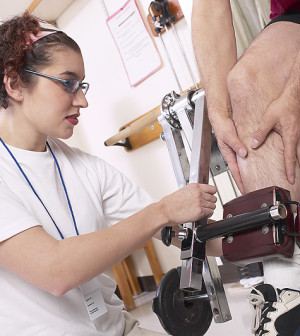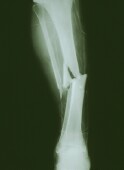- Are You Making This Expensive Thermostat Error This Winter?
- Recognizing the Signs of Hypothyroidism
- 10 Strategies to Overcome Insomnia
- Could Artificial Sweeteners Be Aging the Brain Faster?
- Techniques for Soothing Your Nervous System
- Does the Water in Your House Smell Funny? Here’s Why
- Can a Daily Dose of Apple Cider Vinegar Actually Aid Weight Loss?
- 6 Health Beverages That Can Actually Spike Your Blood Sugar
- Treatment Options for Social Anxiety Disorder
- Understanding the Connection Between Anxiety and Depression
Smokers’ Broken Bones May Heal Less Quickly: Study


Broken bones heal more slowly in smokers, a small new study suggests.
British researchers analyzed bone-healing stem cells in blood samples taken from the area of the fracture in 50 smokers and nonsmokers with broken legs.
The bone-healing cells in nonsmokers were of better quality, were more active and divided more quickly than those in smokers.
“After growing and harvesting the stem cells from the tissue, we were able to closely analyze and monitor how cigarette smoking had a detrimental impact on stem cell growth and development, giving rise to abnormal bone repair,” Andrew Sloan, a researcher at the University of Lincoln, said in a university news release.
“We also showed how the molecules that [affect] certain cellular processes were being hampered by the toxic effects of the tobacco smoke and its constituent components,” Sloan said.
The findings were presented recently at a number of medical conferences in Europe. The data and conclusions should be viewed as preliminary until published in a peer-reviewed journal.
The next phase of the research will involve finding out if the harmful effects of smoking on bone repair can be reversed, according to the news release.
Although the study found an association between smoking and signs of slower bone repair after leg fractures, it did not prove a cause-and-effect relationship.
More information
The American Academy of Orthopaedic Surgeons has more about broken bones.
Source: HealthDay
Copyright © 2026 HealthDay. All rights reserved.










